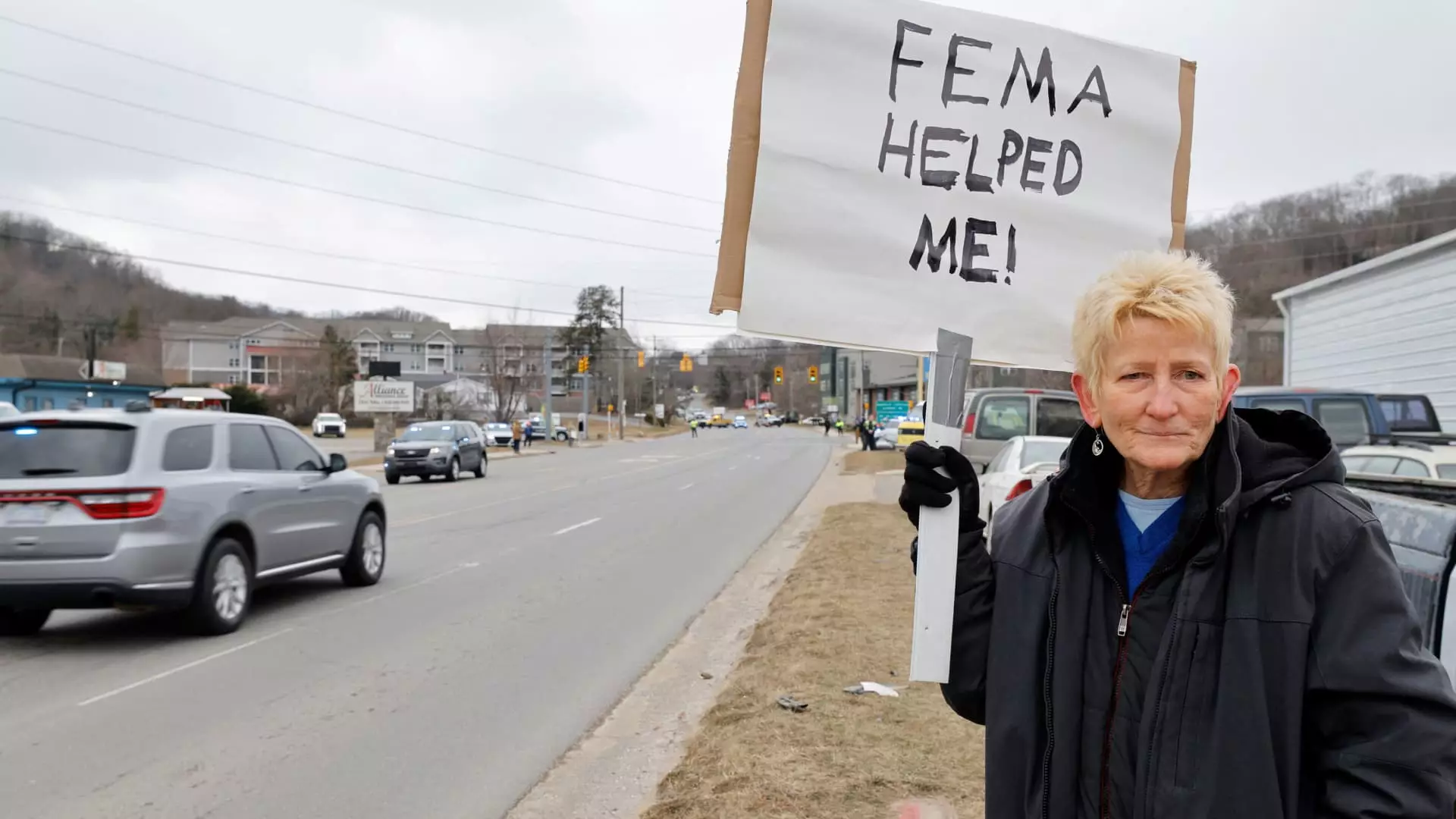The Trump administration’s recent inclination to phase out the Federal Emergency Management Agency (FEMA) bears significant implications that homeowners must grapple with. As government oversight dwindles in areas crucial for disaster recovery, a troubling concern arises: who will be left to pick up the pieces when the inevitable calamity strikes? Financial reliance on a government agency that is designed to supplement disaster recovery—rather than serve as a comprehensive replacement for insurance—is a dangerous path to tread.
The Illusion of Federal Safety Nets
FEMA has become synonymous with disaster relief in America, yet it’s essential to recognize that its purpose has never been to entirely cover losses incurred by homeowners’ insurance policies. Charles Nyce, a risk management and insurance professor at Florida State University, emphasizes that FEMA is not a blanket fix for your disaster-related losses. In a world increasingly plagued by natural disasters exacerbated by climate change, the acknowledgment that homeowners can’t and shouldn’t depend solely on FEMA is unsettling. If the administration treads further down this path, it may leave countless families unprepared when they need aid the most.
President Trump’s comments about restructuring FEMA and reducing disaster aid funding raise serious alarms. Phasing out federal support post-disaster won’t merely find roots in fiscal policy; it threatens to sow confusion and chaos when citizens seek assistance after their homes and lives have been shattered. The push for fewer funds to be distributed directly from the president’s office rather than through established channels is not merely bureaucratic—it is radical. With the president’s office now empowered to make arbitrary disaster aid decisions, the potential for politicization of aid is real and dangerous.
Disaster Preparedness is Now a Personal Responsibility
In light of these alarming developments, one disturbing reality stands clear: disaster preparedness is shifting to an individual responsibility. The expectation that families will shoulder their recovery initiatives after natural disasters is not only burdensome but also unfair. After all, when a tornado or hurricane ravages their community, homeowners won’t have the luxury of waiting for a bureaucratic response. They will need immediate assistance.
As it currently stands, FEMA has offered small grants to cover temporary housing and other immediate needs following disasters, with an average payout of roughly $3,500 between 2010-2019. When compelling individuals to fend for themselves, the question lingers: How many Americans can realistically shoulder such unpredictable financial burdens? The systemic cuts proposed, including a staggering $646 million reduction in FEMA’s budget and the termination of vital disaster prevention and mitigation programs, point towards an administration more interested in budgetary austerity than safeguarding its citizens’ welfare.
State and Local Governments: The New First Responders
The proposed transition towards relying more heavily on state governments translates into a radical restructuring of our national disaster response framework. States will bear the brunt of responsibilities they may not be financially equipped to handle. Without appropriate federal funding, numerous municipalities will fight an uphill battle to recover from natural disasters, leaving their residents vulnerable to economic ruins and emotional upheaval.
Experts are alarmed by the notion that state and local agencies will have to fill the void left by an ineffective FEMA. This decentralization presents stark challenges, particularly for communities already entrenched in economic vulnerability. The expectation that cash-strapped localities absorb the financial liabilities of disaster recovery embodies a shortsighted approach towards governmental responsibility. State administrators may find themselves in the unenviable position of having to prioritize budget cuts over public safety.
Empowering Citizens: A Call for Proactive Measures
As the federal government weaves a narrative of diminished catastrophe management, individual homeowners must rise to the occasion. This stark shift in disaster assistance calls for proactive measures, with a critical reassessment of existing home insurance policies. Homeowners must ensure they are adequately insured and consider supplemental coverage—like flood insurance—to mitigate risks.
Additionally, preparedness isn’t just about insurance. Households should stock essential supplies, including dry food, water, and emergency kits, ready to sustain them in the immediate aftermath of disaster. In a climate where rapid responses can save lives, families must cultivate a safety mindset. In today’s political environment, the obligation to secure one’s survival rests solely on the individual.
Emerging from these potential changes in FEMA’s operational framework is a powerful lesson: reliance on centralized government aid can no longer be the default safety net for American families. Homeowners must become their own first responders, prepared to navigate the uncertainties of a changing landscape where relief isn’t guaranteed. The ramifications of a downsized FEMA demand that we reassess expectations and take charge of our family’s safety—before disaster strikes.

